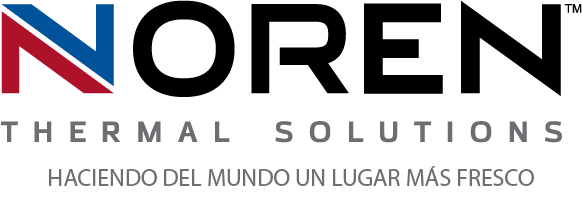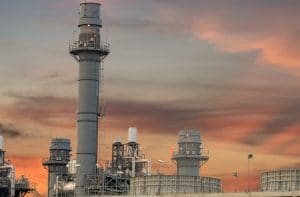 Over the years, the ability to maintain efficient and reliable electrical cooling processes has become increasingly more attainable for companies in nearly all industries. This is thanks largely to the introduction of heat exchangers and their more natural, eco-friendly cooling processes. Heat exchangers helped companies achieve the consistent cooling of electrical enclosures with optimal results and at minimal costs, which helped pave the way for them to introduce more advanced technologies into their workflows. For most companies, this advancement has taken place within tightly controlled environments, such as warehouses and factories. In industries where operations take place in more hazardous locations, the advancement of electrical cooling has been more complex. (more…)
Over the years, the ability to maintain efficient and reliable electrical cooling processes has become increasingly more attainable for companies in nearly all industries. This is thanks largely to the introduction of heat exchangers and their more natural, eco-friendly cooling processes. Heat exchangers helped companies achieve the consistent cooling of electrical enclosures with optimal results and at minimal costs, which helped pave the way for them to introduce more advanced technologies into their workflows. For most companies, this advancement has taken place within tightly controlled environments, such as warehouses and factories. In industries where operations take place in more hazardous locations, the advancement of electrical cooling has been more complex. (more…)
Turning Air-to-Air Cooling into High-Performance Solutions
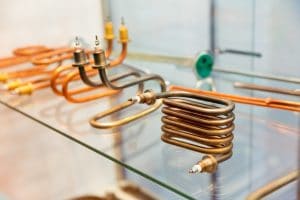 It’s an insurmountable fact that technology requires adequate cooling to operate. Without an efficient thermal management solution, any form of technology would succumb to the excess waste heat that its electrical components generate. However, traditionally, the electrical cooling solutions that companies have relied on have typically been less than efficient, especially when implemented at scale within large industrial settings. Fortunately, meeting the demand for more advanced thermal management has been easier for most companies thanks to the advent of more streamlined electrical cooling solutions. With the ability to rapidly transfer large amounts of waste heat, modern heat exchangers can provide high-performance, air-to-air cooling capabilities to handle most advanced applications’ thermal management needs. (more…)
It’s an insurmountable fact that technology requires adequate cooling to operate. Without an efficient thermal management solution, any form of technology would succumb to the excess waste heat that its electrical components generate. However, traditionally, the electrical cooling solutions that companies have relied on have typically been less than efficient, especially when implemented at scale within large industrial settings. Fortunately, meeting the demand for more advanced thermal management has been easier for most companies thanks to the advent of more streamlined electrical cooling solutions. With the ability to rapidly transfer large amounts of waste heat, modern heat exchangers can provide high-performance, air-to-air cooling capabilities to handle most advanced applications’ thermal management needs. (more…)
How Companies Keep Electrical Cooling Eco-Friendly
 Implementing ways to keep their operations efficient and eco-friendly has been a vital goal, as well as a significant challenge, for companies in all industries. The motivations behind this goal and the challenges that companies often face in pursuing it are often related to the complications that can arise from reliance on older, costly electrical cooling solutions. Therefore, many companies have had the most success in creating efficient and eco-friendly process by starting with more natural and streamlined electrical cooling solutions. (more…)
Implementing ways to keep their operations efficient and eco-friendly has been a vital goal, as well as a significant challenge, for companies in all industries. The motivations behind this goal and the challenges that companies often face in pursuing it are often related to the complications that can arise from reliance on older, costly electrical cooling solutions. Therefore, many companies have had the most success in creating efficient and eco-friendly process by starting with more natural and streamlined electrical cooling solutions. (more…)
Heat Pipes and Electrical Cooling at Scale
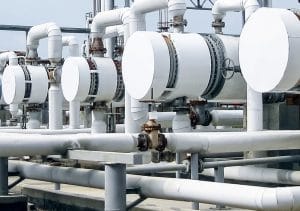 Heat exchangers that are designed based on heat pipe technology have long proven advantageous to companies that rely on technology. That reliance has grown exponentially heavier over the years in every industry, and the ability to achieve high-performance electrical cooling at increasingly larger scale has become equally more important. For many advanced applications with high-performance thermal management needs, heat pipes have continued to provide the efficient and highly effective cooling methods that have always made them an advantage to modern companies. (more…)
Heat exchangers that are designed based on heat pipe technology have long proven advantageous to companies that rely on technology. That reliance has grown exponentially heavier over the years in every industry, and the ability to achieve high-performance electrical cooling at increasingly larger scale has become equally more important. For many advanced applications with high-performance thermal management needs, heat pipes have continued to provide the efficient and highly effective cooling methods that have always made them an advantage to modern companies. (more…)
The Role of Heat Exchangers in Eco-Friendly Production
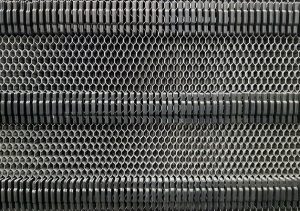 Many of the most important trends in manufacturing and other industries have involved implementing advanced technologies to improve key efficiencies and overall productivity. However, more recently, trends and changes in processes have also become focused on creating more natural and eco-friendly processes, especially in the realm of electrical thermal management. For example, for many companies, the use of eco-friendly heat exchangers has proven a valuable element in their quest to lower their environmental footprints. This is thanks largely to their ability to handle large amounts of electrical waste heat consistently, with minimal amounts of energy, and with a limited impact on the environment. (more…)
Many of the most important trends in manufacturing and other industries have involved implementing advanced technologies to improve key efficiencies and overall productivity. However, more recently, trends and changes in processes have also become focused on creating more natural and eco-friendly processes, especially in the realm of electrical thermal management. For example, for many companies, the use of eco-friendly heat exchangers has proven a valuable element in their quest to lower their environmental footprints. This is thanks largely to their ability to handle large amounts of electrical waste heat consistently, with minimal amounts of energy, and with a limited impact on the environment. (more…)
Why Modern Thermal Solutions Often Rely on Transferring Heat
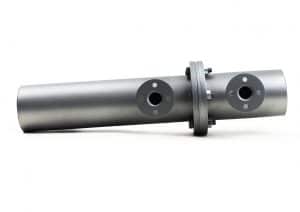 Throughout most modern industries, electrical thermal management has always played an important role in maintaining a company’s overall efficiency and level of operations. Though older, more conventional forms of electrical thermal management could often prove cumbersome to maintain, the burden was a necessary one for companies to shoulder. Today, however, more modern forms of electrical thermal management often rely on more natural methods of transferring waste heat that are also easier and more efficient to maintain. Thanks to the ability to rapidly and continuously transfer electrical waste heat before it can cause damage to electrical components, more modern thermal solutions have proven invaluable to companies in nearly every industry. (more…)
Throughout most modern industries, electrical thermal management has always played an important role in maintaining a company’s overall efficiency and level of operations. Though older, more conventional forms of electrical thermal management could often prove cumbersome to maintain, the burden was a necessary one for companies to shoulder. Today, however, more modern forms of electrical thermal management often rely on more natural methods of transferring waste heat that are also easier and more efficient to maintain. Thanks to the ability to rapidly and continuously transfer electrical waste heat before it can cause damage to electrical components, more modern thermal solutions have proven invaluable to companies in nearly every industry. (more…)
When Electrical Cooling Doesn’t Require Much Maintenance
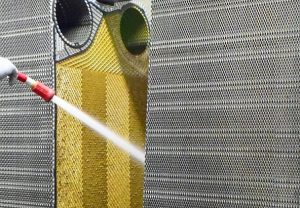 Making electrical cooling more efficient for modern technologies has been one of the most significant benefits of advanced heat exchangers. With the ability to dramatically reduce the amount of energy required to facilitate electrical thermal management, heat exchangers have helped companies enhance the efficiency of their technologies and overall operations in several ways. In addition to energy savings, many of those benefits also stem from the reduced amount of maintenance that heat exchangers often require and the significantly reduced downtime due to unscheduled repairs. (more…)
Making electrical cooling more efficient for modern technologies has been one of the most significant benefits of advanced heat exchangers. With the ability to dramatically reduce the amount of energy required to facilitate electrical thermal management, heat exchangers have helped companies enhance the efficiency of their technologies and overall operations in several ways. In addition to energy savings, many of those benefits also stem from the reduced amount of maintenance that heat exchangers often require and the significantly reduced downtime due to unscheduled repairs. (more…)
The Significant Benefits of Modern Heat Exchangers
 There are many different ways in which more modern heat transfer techniques have helped streamline electrical cooling processes. The most impactful of these changes is the core process by which modern cooling systems deal with electrical waste heat compared to their more conventional counterparts. In older cooling solutions, the goal was to utilize cold air in order to stop electrical waste heat from raising the temperature inside of an electrical enclosure. In modern heat exchangers, more efficient cooling is achieved by the use of an eco-friendly cooling fluid that absorbs and transfer waste heat continuously. (more…)
There are many different ways in which more modern heat transfer techniques have helped streamline electrical cooling processes. The most impactful of these changes is the core process by which modern cooling systems deal with electrical waste heat compared to their more conventional counterparts. In older cooling solutions, the goal was to utilize cold air in order to stop electrical waste heat from raising the temperature inside of an electrical enclosure. In modern heat exchangers, more efficient cooling is achieved by the use of an eco-friendly cooling fluid that absorbs and transfer waste heat continuously. (more…)
Specialized Heat Transfer Technologies for Different Industries
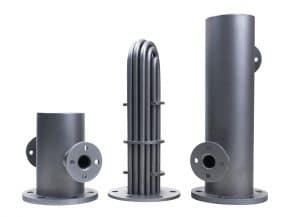 Electrical thermal management is a common need throughout all industries. The more a company relies on technology of various types, the more significant the impact the electrical cooling solutions they utilize will have on their operations. In the most common applications, this need comes in the form of keeping electrical enclosures consistently cooled without having to invest in exorbitant amounts of energy to accomplish it. However, efficient thermal management has several different and unique implications in different industries, and the versatile manner in which heat exchangers transfer waste heat have beneficial to most of them, as well. (more…)
Electrical thermal management is a common need throughout all industries. The more a company relies on technology of various types, the more significant the impact the electrical cooling solutions they utilize will have on their operations. In the most common applications, this need comes in the form of keeping electrical enclosures consistently cooled without having to invest in exorbitant amounts of energy to accomplish it. However, efficient thermal management has several different and unique implications in different industries, and the versatile manner in which heat exchangers transfer waste heat have beneficial to most of them, as well. (more…)
3 Factors of Thermal Management Heat Exchangers Streamline
 Many different factors contribute to the advanced state of electrical thermal management and the variety of benefits that companies enjoy when they utilize the right cooling solutions. For many modern applications, the greatest benefits stem from advanced cooling solutions’ abilities to streamline virtually every aspect of thermal management to make electrical cooling a much more efficient process. From optimizing an application’s use of energy to making it easier to implement more advanced technologies, heat exchangers help streamline the most important elements of modern electrical thermal management. (more…)
Many different factors contribute to the advanced state of electrical thermal management and the variety of benefits that companies enjoy when they utilize the right cooling solutions. For many modern applications, the greatest benefits stem from advanced cooling solutions’ abilities to streamline virtually every aspect of thermal management to make electrical cooling a much more efficient process. From optimizing an application’s use of energy to making it easier to implement more advanced technologies, heat exchangers help streamline the most important elements of modern electrical thermal management. (more…)

